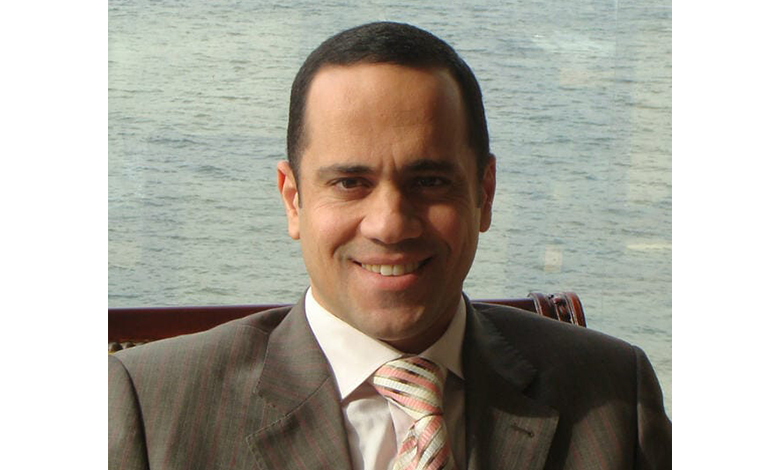
Can you tell me a bit about your background and your current role?
I’m a people-oriented professional, with around 20 years working experience in the Human capital management industry. I started my career as a headhunter, and have gone through the human capital management journey. Now I am a managing partner for Rawaj HCM, and founder of Z-Coach foundation that’s concerned with linking the graduates with the labour market.
Why is it important to study and to know human behavior?
The study of human behaviour has played an important role in improving the lives of people in general. It has also facilitated advancements in areas such as organizational behaviour management. We need to know why people make decisions, with the goal of better understanding the decision-making process. We also are concerned with the human interaction inside organizations and why conflict occurs among co-workers and how can we avoid this and link people to a common goal. Employers hire psychology professionals to better understand personality types of their employees and encourage personality shifts to avoid personality clashes. Perhaps you have heard many times that there is always a misunderstanding between a manager and his/her team. It’s not necessarily related to the type of work itself, but in many cases it could be related to the different personality types.
How this will affect performance & productivity?
Studies have shown that applying psychology at work can help solve problems and create improvements in the workplace. Understanding self and others more clearly will definitely improve communications, and will increase success in all relationships. For me, it’s very important to know deeply about my behaviour and my own thinking and gain more insights and better understanding of those around me. I think the results will be spectacular on performance and productivity once we come to a common ground and understanding.
Give some advice to our readers – How can we have better and healthy workplaces?
We are living in a volatile and uncertain world. And I believe most of us have gone through different pressures inside our workplaces; speed up your productivity, maximize your efficiency, cope up with the fast demands, etc. And we are constantly given a lot of work to do in a very short time. All these pressures can actually harm our bodies, physically and mentally. So my advice is to try hard to improve your work environment. It’s a simple advice, but needs a lot of effort to apply.
To make sure that I drove my message home, I meant by improving work environment not only the building structure and office interiors, but the most important is the people around you. If there is a kind of harmony among people inside any organization, this will definitely let one feel focused, happy, and more productive. I.O Psychologists will play a great role in fulfilling this task. So do not underestimate their role. I also urge HR professionals to take part in improving the workplace environment.
What do you like least about the world of human resources?
I do not really like the wording “Human Resources”. I tend to say “Human Capital”, because I see people as assets not resources.
What is the single biggest challenge facing the HR department today?
Oh! A very difficult and challenging question Stanislava! Really there are many challenges that are facing the HR department today. To nominate a number of them, I will begin with the ever challenging one that is Talent. When it comes to acquiring high quality talents, the game has changed. As the tight labour market continues to create significant challenges for HR departments. In a recent survey for XpertHR, HR professionals reported hiring as their most critical challenge. It’s a challenge because of the talent war and lack of high quality talents, and because of the obsolete methods used to attract talents.
On the other hand, I believe that leadership development is one of the biggest challenges for the HR professionals. SHRM 2020 poll indicated leadership development as a key challenge for HR professionals. I see this clearly in most of the companies we are working with. As the workforce are aging quickly and companies are expanding and growing, it has become more important than before to apply leadership programs and put succession plans into quick action. Also HR professionals have to take great strides in applying retention plans to stop the talent leakage.
Finally, I see that digital transformation and the application of human sciences inside organizations is also another big challenge for HR professionals. HR professionals need to exert more efforts to cope up with the transformation taking place day after day.
What would be the competencies and skills required by future jobs according to you?
There seems to be a consensus that digitalization will continue to transform the competency requirements for employees over the years to come. However; it’s quite difficult to predict exactly how the importance of each specific individual competency will change, or which competencies have a low capacity for automation and will therefore be in demand in the labour market. So, I am concerned with the competencies that give humans the edge over machines and are almost impossible to automate.
Of course each position requires a different set of competencies and skills. However; if we speak in general about the common ground that all talents inside an organization need and will be difficult to automate, I think that communication is the most outstanding competency that is required today and in the future. Being able to communicate effectively and spread an atmosphere of harmony will definitely be required.
Also competencies related to competitiveness, decision making, creativity, complex problem solving are all required in the future jobs. Moreover; I do believe that creativity and social intelligence competencies are likely to gain greater importance in the future.











